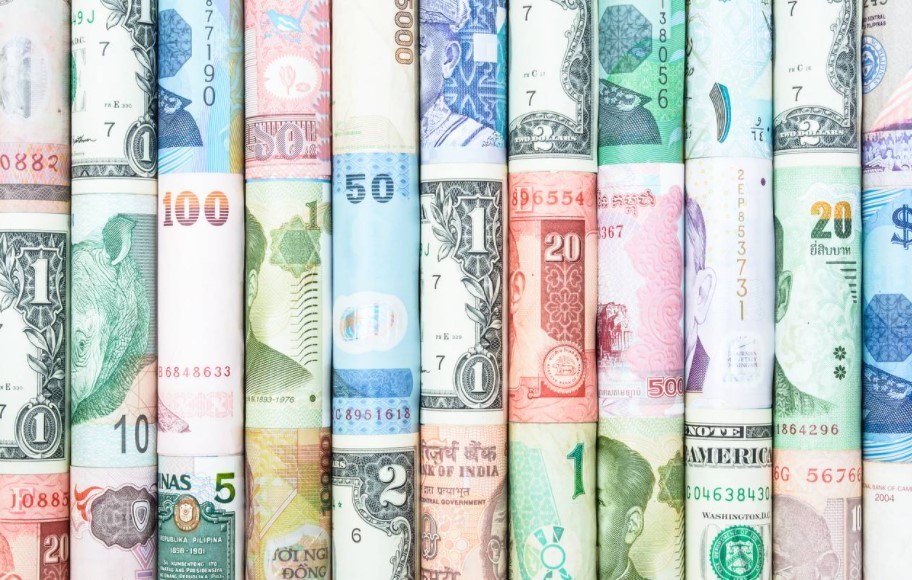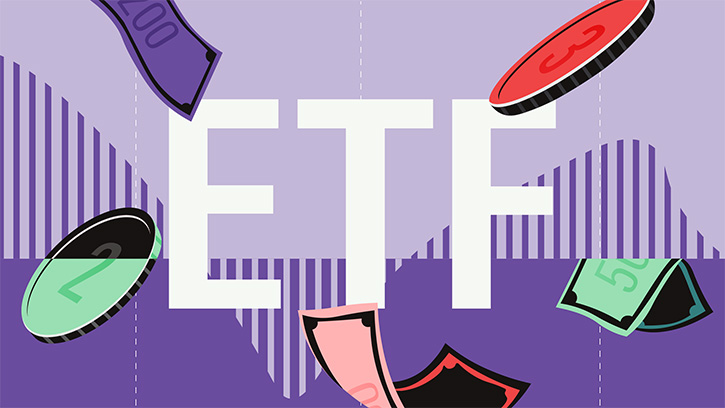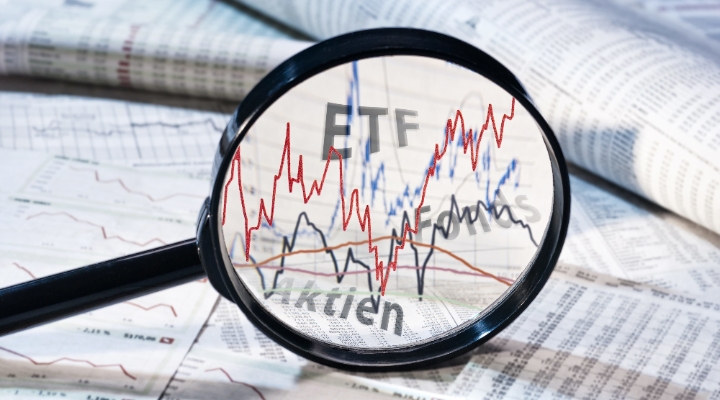
As part of our ongoing ETF week, we're looking at some highly rated passive funds for income.
If you are looking for funds that prioritise generating a regular income stream rather than focusing purely on growth, income funds might be the right choice for you. These are products designed for investors who want to regular, low-volatility dividends, regardless of market conditions.
But successful income investing depends on many factors, and not just on the selection of a portfolio of good dividend-paying companies.
When looking for periodic income, funds with exposure to the companies with the highest dividend yields can be tempting.
But what constitutes a good high-dividend strategy, especially in the passive universe? Income investors are increasingly attracted to exchange traded funds (ETFs) for access to certain markets, drawn by their ease of use, transparency, and low fees.
How ETF Investors Can Avoid the Dividend Trap
One consideration is the cost of money. Fixed income securities are not the only ones affected by changes in interest rates. High-dividend products, including popular ones such as ETFs, could also be sensitive to rate fluctuations as they compete with bonds on yield.
But regardless of interest rates, investors should be looking for funds with stable payouts and constant dividend growth, rather than the highest yield. This is because stable and continuous growth in dividends suggests responsible corporate management.
Let’s look at an example. A company paying a 1.5% dividend with a growth rate of 10% per year can generate more income in six years than a company paying 3% each year. This highlights the importance of understanding which index the ETF is replicating, and how it chooses its securities in order to avoid the so-called “dividend trap”.
In general, dividend strategies balance the yield from current income with the portfolio’s ability to provide long-term capital growth. However, strategies may vary from fund to fund; some aim to maximise yield while others prefer a lower but stable long-term income.
This means that investors need to conduct due diligence to determine which strategy best suits them.
Which ETFs Should I Consider for Income?
Below we list five income ETFs highlighted by our team of analysts on passive strategies, each for a different geographic region.
Europe: iShares MSCI Europe Quality Dividend ESG UCITS ETF EUR (QDVX)
Morningstar Medalist Rating: Gold
Morningstar Category: Europe Equity Income
Ongoing Charge: 0.28%
This strategy earns a Morningstar Medalist Rating of Gold. The analysis of the portfolio shows it has maintained an overweight in liquidity exposure and an underweight in volatility exposure compared with category peers. High liquidity exposure is attributed to stocks with a high trading volume, lending managers more flexibility. Low volatility exposure is rooted in stocks that have a lower standard deviation of returns. The ETF is overweight in technology by 4.9 percentage points in terms of assets compared with the category average. The portfolio is positioned across 81 holdings and is relatively top-heavy. Of the strategy’s assets, 30.5% are concentrated within the top 10 holdings, compared to the category’s 19.0% average. Fees (0.28%) are among the lowest in the category.
US: SPDR® S&P US Dividend Aristocrats UCITS ETF (UDVD)
Morningstar Medalist Rating: Silver
Morningstar Category: US Equity Income
Ongoing Charge: 0.35%
This US-focused strategy shows a greater presence of mid- and small-cap stocks than its peers within the Morningstar category, and the portfolio has maintained an overweight exposure to liquidity and quality stocks. In recent years, this fund has consistently moved towards higher volume stocks than its Morningstar peers. This gives managers greater flexibility during bear markets to sell without adversely affecting prices. In recent months, the strategy has been more exposed to liquidity factors than its direct competitors. The strategy has also had a defensive bias.
Performance-wise, the ETF has been subpar over the short term but strong over the long term. Over the past five years, the fund slightly underperformed the category index (a benchmark chosen by Morningstar for the peer group) 0.36 percentage points, but outperformed its average peer by 1.4 percentage points. More importantly, on a 10-year basis, this share class led the index by an annualised 0.75%. It has also been leading the index with a higher risk-adjusted return over the trailing 10-year period. Often, higher returns are associated with more risk. However, this strategy stayed in line with the benchmark’s standard deviation. As well as its low cost (0.35%), these factors earn it a Medalist Rating of Silver.
UK: L&G Quality Equity Dividends ESG Exclusions UK UCITS ETF (LDUK)
Morningstar Medalist Rating: Silver
Morningstar Category: UK Equity Income
Ongoing Charge: 0.24%
The analysis of the strategy’s portfolio shows it has maintained a significant overweight position in quality exposure and yield exposure compared with category peers. It invests in stocks with low financial leverage and strong returns on equity, giving it a high exposure to quality. These holdings also tend to be high dividend-paying or buyback stocks. The portfolio – which is positioned across 37 holdings and is relatively top-heavy – is overweight in financial services and basic materials relative to the category average by 29.9 and 3.6 percentage points, respectively. This ETF maintains a sizable cost advantage over competitors, priced within the cheapest fee quintile among peers (at 0.24%), and earns a Morningstar Medalist Rating of Silver.
Global: Fidelity Global Quality Income ETF Inc (FGQI)
Morningstar Medalist Rating: Gold
Morningstar Category: Global Equity Income
Ongoing Charge: 0.40%
This strategy earns a Morningstar Medalist Rating of Gold. Over the past three-year period, it beat the category index by an annualised 0.65 percentage points, and outperformed the category average by 3.1 percentage points. And more importantly, when looking across a longer horizon, the strategy came out ahead. On a five-year basis, it led the index by an annualised 3.8 percentage points.
The risk-adjusted performance only continues to make a case for this fund. The share class led the index over the trailing five-year period. These strong risk-adjusted results have not resulted in a bumpier ride for investors. This strategy took on similar risk as the benchmark, as measured by standard deviation.
The portfolio is overweight in technology and consumer cyclical relative to the category average by 4.4% and 2.7%, respectively. The sectors with low exposure compared to category peers are consumer defensive and financial services. The ongoing charge is 0.40%.
Emerging Markets: WisdomTree Emerging Markets Equity Income UCITS ETF (DEMD)
Morningstar Medalist Rating: Gold
Morningstar Category: Global Emerging Markets Equity
Ongoing Charge: 0.46%
This fund has a very broad and diversified portfolio that looks for companies paying the highest amount of dividends in US dollars. Initially, in constructing the portfolio, companies are assigned the standard weight they would have in a traditional equity benchmark (thus based on market capitalisation). The weights are then increased or decreased depending on the dividend yield they offer.
This approach typically favours companies in the utilities, materials and energy sectors, as well as financial stocks – the latter currently account for 25% of the portfolio – as these usually have above-average market yields. Currently, the combined weight of these sectors in the WisdomTree ETF is around 55%, compared to an average of 36% among funds in the same Morningstar category.
In the evaluation process, Morningstar analysts generally prefer screening companies by quality over basic performance. However, this judgement is ‘softened’ in the case of highly diversified strategies. This is the case with the WisdomTree ETF, which holds more than 500 stocks, thus helping to spread the risk of possible dividend cuts in the future. Compared to its peers, this tracker stands out due to its lower ongoing expenses of 0.46%. Morningstar assigns it a Medalist Rating of Gold.




























